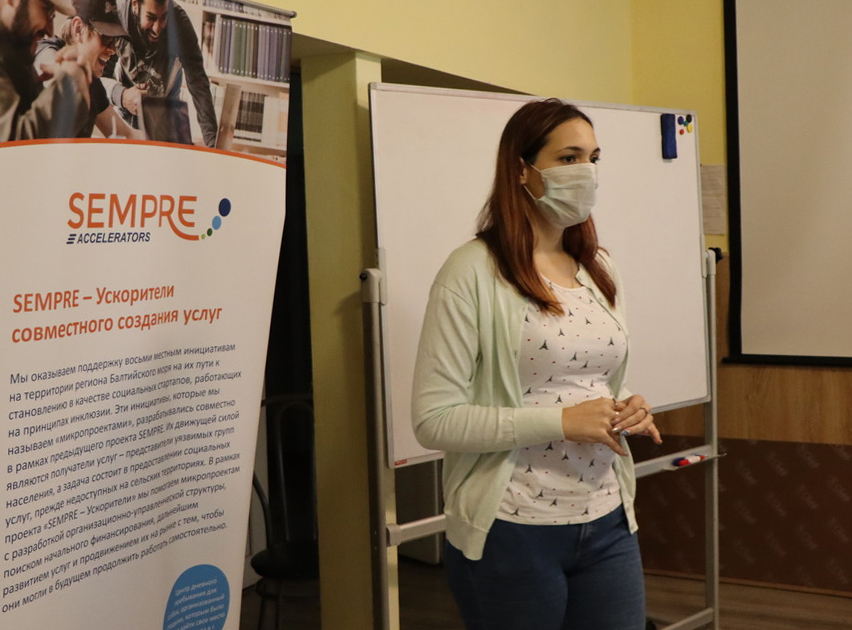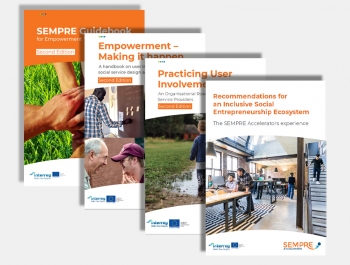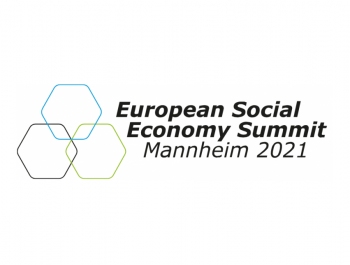While our partners from the Karelian Research Institute of the Russian Academy of Sciences (KarRC RAS) do not implement their own social start-ups, their main role in SEMPRE Accelerators is to transfer the tools and concepts developed in SEMPRE to the Russian rural context and bring an additional perspective into the partnership.
On 10 and 11 October 2020, specialists from KarRC RAS ran the first training sessions at the “House on the Rock” (“Dom na Skale”) – an NGO providing services to individuals in difficult situations, people with disabilities, and homeless people.
The sessions were facilitated by Anastasia Bykova, Elena Konovalchikova, and Alexandra Smirnova and the following empowerment tools were tried out. They are described in detail in the SEMPRE Empowerment Handbook and were selected together with the leader of “House on the Rock”, after having observed the service users from February to September:
- Future Workshop
- Business Model Canvas

Firstly, Future Workshop is a technique that has helped involve users more widely in dealing with collective or shared issues. Using this method, a group can clarify how their ideal future could look like, and work out new solutions for their common needs. Service users at the “House on the Rock” discussed the issues they were facing and what can be done to jointly handle them. During the session, Anastasia, one of the facilitators, tried to convince the service users that they are able to handle many of the issues themselves, while for others proper resources are to be found. Eventually, the following ideas were chosen for follow-up development:
- Cost management and financial literacy classes
- Classes in speaking skills and etiquette
- Legal literacy classes
- Building a greenhouse and starting a vegetable/gardening plot in the NGO premises
- Soap-making workshop
Secondly, the Business Model Canvas was tested. It is an empowerment tool that helps visualizing development prospects for ideas: which ones can grow into a start-up, and which ones can be implemented through local initiatives.
Eventually, Alexandra recapitulated on the results of the two days: “The session will definitely have an effect. House on the Rock service users have gathered together and for the first time articulated the issues they have in common, which is truly important in itself”. They have also gained new knowledge, e.g. in financial literacy and basic marketing skills. Their ideas can be realized within the organization’s activities. Researchers from KarRC RAS and the House on the Rock NGO have agreed on further activities: the plans include training in several areas of social entrepreneurship and sharing of experience with other social service providers.





